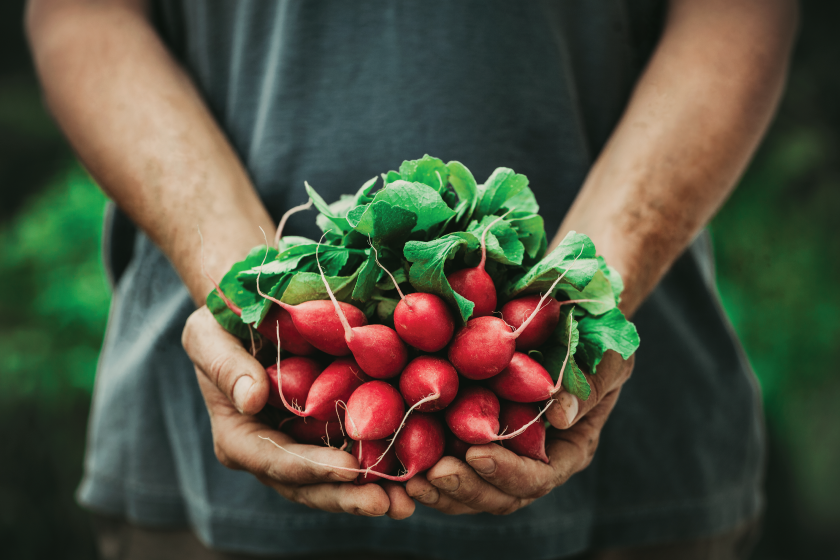
From what I’ve experienced, most attempts to give anything up cold-turkey don’t pan out. I can only think of one instance in my life where a sudden change did work, which was switching to a plant-based diet. Cold-turkey vegan (Ha!) Even with that, there was planning. I came to the idea after pursuing other avenues. To get started, I purchased a week’s worth of replacement items; almond milk for milk, beans and tofu for meats, etc. So it was actually still a replacement pattern, just a faster track. Converting as quickly as I did is not common. To anyone who asks me about becoming vegetarian or vegan, I always say take it very slowly. I had a specific issue with fatigue which immediately improved when I switched to a high vegetable intake and reduced my cholesterol. I felt almost instantly better, so I had no desire to return to old habits. The most important things I learned were that planning was key, substitutes were necessary, and change (even a drastic one that we’d never expect to make) is within our capability, if we are willing to commit.
Become Actively Engaged in the Habit Making Process
We are creatures of habit and creatures that thrive in a routine. Certainly, it’s great to have moments of spontaneity, but the majority of the time, we find ourselves on familiar paths which we’ve already forged. So why do we think that an abrupt change will work? A crash diet, an impulse purchase, a decision made in anger. These are reactive patterns. We are frustrated with our bodies, so we crash diet. We feel depressed, so we buy something to make ourselves feel better. A friend hurts us, and we give them the silent treatment for weeks. Unfortunately, reactive behaviors are not often sustainable. A crash diet’s course is implied in its name. An impulse purchase causes buyer’s remorse. Lack of communication leads to even more suffering in any relationship.
Proactive vs Reactive Behaviors
Instead of reactive behaviors, we should do our best to cultivate proactive behaviors. This is yoga therapy. Yoga Sutra 1.12 says “Abhyasa vairagyabhyam tannirodhah”. “Abhyasa” is a diligent practice, “Vairagya” is nonattachment, and “nirodhah” is mastery. So basically, as we master a new pattern, behavior, or skill, we detach or delink from one we want to change. If we want a healthier diet, we make small adjustments, like non-dairy milk for cow’s milk, and see if that is sustainable. If we find ourselves depressed, maybe we do still go shopping, but we put things on layaway instead of buying. Then if we still want said item the next day, we go back for it. If a friend hurts us, we can and probably should take some space to cool off and gather our thoughts. Later, we come back with that friend and more rationally express our hurt. Subtly beginning to shift our behaviors helps us to remain proactive. This way, when one of these experiences comes up, we already have a plan of action. We can be confident in the fact that we are constantly striving for self-improvement.
Reflect, Refine, Release
Every behavior that we exhibit has the potential to change for the better. But we must approach them in efficient, effective ways. Maybe we don’t even make a concrete change today, but we write out a plan for it. That’s our bhavana, our positive visualization, and it’s still a small step toward change. Think of one pattern in your own life you might like to change. Got it? Okay, now imagine you’ve already improved it. What does that look like? Write it down. Be specific. How does it change your daily life to be this new version of yourself? How does it feel? Now write down a new replacement pattern. What is one concrete step you could take toward change? What does the timeline look like?
And just like that, you’re already on your way to an even better version of yourself. Go you!



 Ashley views yoga as a healing art. She completed her 200-hr training here at Be the Change, and is currently enrolled in our Yoga Therapy program. She embraces the similarities of yoga and psychology. She has a Bachelor’s in Psychology from Thomas Edison State University, and loves combining this background with the Yoga Sutras in practice. Ashley teaches all levels of yoga, from restorative and therapeutic practices to intermediate vinyasa and hatha flow classes. She is passionate about working with pregnant mamas to create peaceful pregnancies. She is a Viniyoga practitioner, meeting her students where they are and designing practices specific to their needs. She builds strong connections with her students and loves taking on private clients to delve deeper into the many facets and tools yoga offers. Ashley is also the founder of Apothecary Yoga, a network of yoga teachers and aromatherapists ready to connect with new clients.
Ashley views yoga as a healing art. She completed her 200-hr training here at Be the Change, and is currently enrolled in our Yoga Therapy program. She embraces the similarities of yoga and psychology. She has a Bachelor’s in Psychology from Thomas Edison State University, and loves combining this background with the Yoga Sutras in practice. Ashley teaches all levels of yoga, from restorative and therapeutic practices to intermediate vinyasa and hatha flow classes. She is passionate about working with pregnant mamas to create peaceful pregnancies. She is a Viniyoga practitioner, meeting her students where they are and designing practices specific to their needs. She builds strong connections with her students and loves taking on private clients to delve deeper into the many facets and tools yoga offers. Ashley is also the founder of Apothecary Yoga, a network of yoga teachers and aromatherapists ready to connect with new clients.

